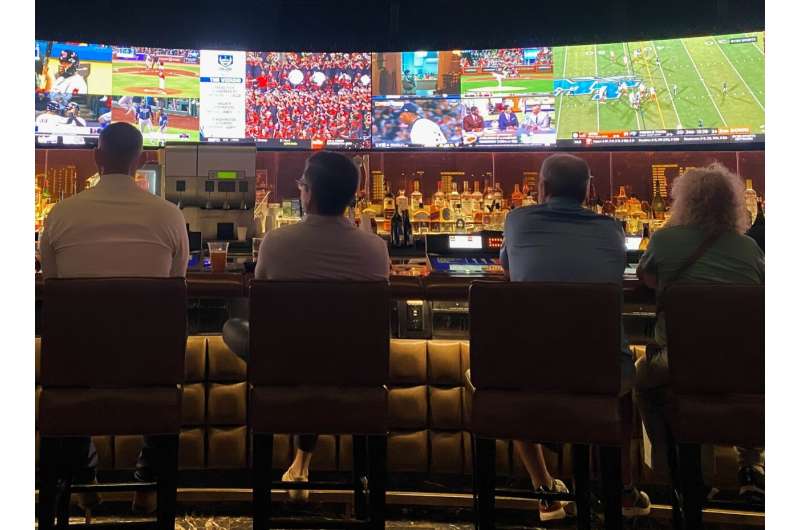This article has been reviewed according to Science X's editorial process and policies. Editors have highlighted the following attributes while ensuring the content's credibility:
fact-checked
peer-reviewed publication
trusted source
proofread
Study breaks down science of sports betting

It's a dilemma that many a regular bettor probably faces often—deciding when to place a sports bet. In a study entitled, "A statistical theory of optimal decision-making in sports betting," Jacek Dmochowski, Associate Professor in the Grove School of Engineering at The City College of New York, provides the answer. His original finding appears in the journal PLOS One.
"The central finding of the work is that the objective in sports betting is to estimate the median outcome. Importantly, this is not the same as the average outcome," said Dmochowski, whose expertise includes machine learning, signal processing and brain-computer interfaces. "I approach this from a statistical point-of-view, but also provide some intuitive results with sample data from the NFL that can be digested by those without a background in math."
To illustrate one of the findings, he presents a hypothetical example. "Assume that Kansas City has played Philadelphia three times previously. Kansas City has won each of those games by margins of 3, 7, and 35 points. They are playing again, and the point spread has been posted as 'Kansas City -10.' This means that Kansas City is favored to win the game by 10 points according to the sportsbooks."
For a bettor, Dmochowski added, the optimal decision in this scenario is to bet on Philadelphia (+10), even though they have lost the last three games by an average margin of 15 points. The reason is that the median margin of victory in those games was only 7, which is less than the point spread of 10.
He noted that because a bettor's intuition may sometimes be more linked to an average outcome rather than the median, the utilization of some data, or even better, a model, is strongly encouraged.
On his new findings, Dmochowski said he was surprised that the derived theorems have not been previously presented, although it is possible that sports books and some statistically-minded bettors have understood at least the basic intuitions that are conveyed by the math.
Moreover, other investigators have reported findings that align with what's in the paper, principally Fabian Wunderlich and Daniel Memmert at the German Sports University of Cologne.
With a Pew Research poll establishing that one in five Americans have placed a sports bet in the last year, Dmochowski's study should be of interest to many bettors in this growing enterprise.
He had other advice for potential bettors. Firstly, "Avoid betting on matches for which the sports book has produced estimates that are 'very close' to the median outcome. In the case of the National Football League, the analysis shows that 'very close' is equivalent to the point spread being within one point of the true median."
"Secondly, understand that the sports books are incredibly skilled at setting the odds. At the same time, they only need to make a small error to allow a profitable bet. So the goal is to seek out those opportunities."
More information: Jacek P. Dmochowski et al, A statistical theory of optimal decision-making in sports betting, PLOS ONE (2023). DOI: 10.1371/journal.pone.0287601
Journal information: PLoS ONE
Provided by City College of New York


















